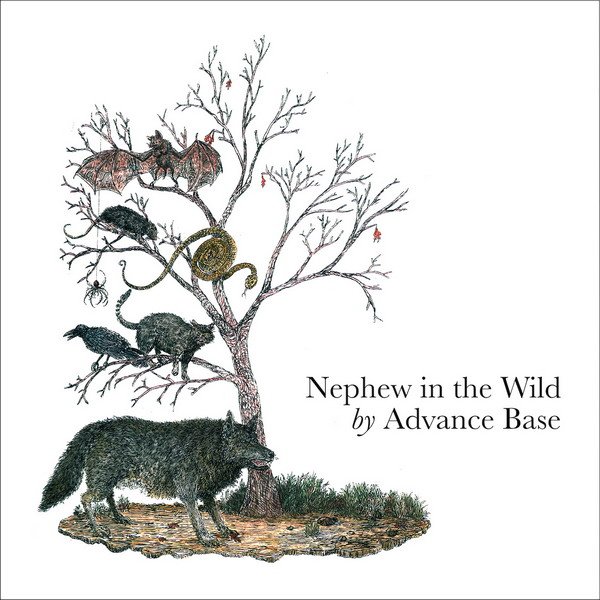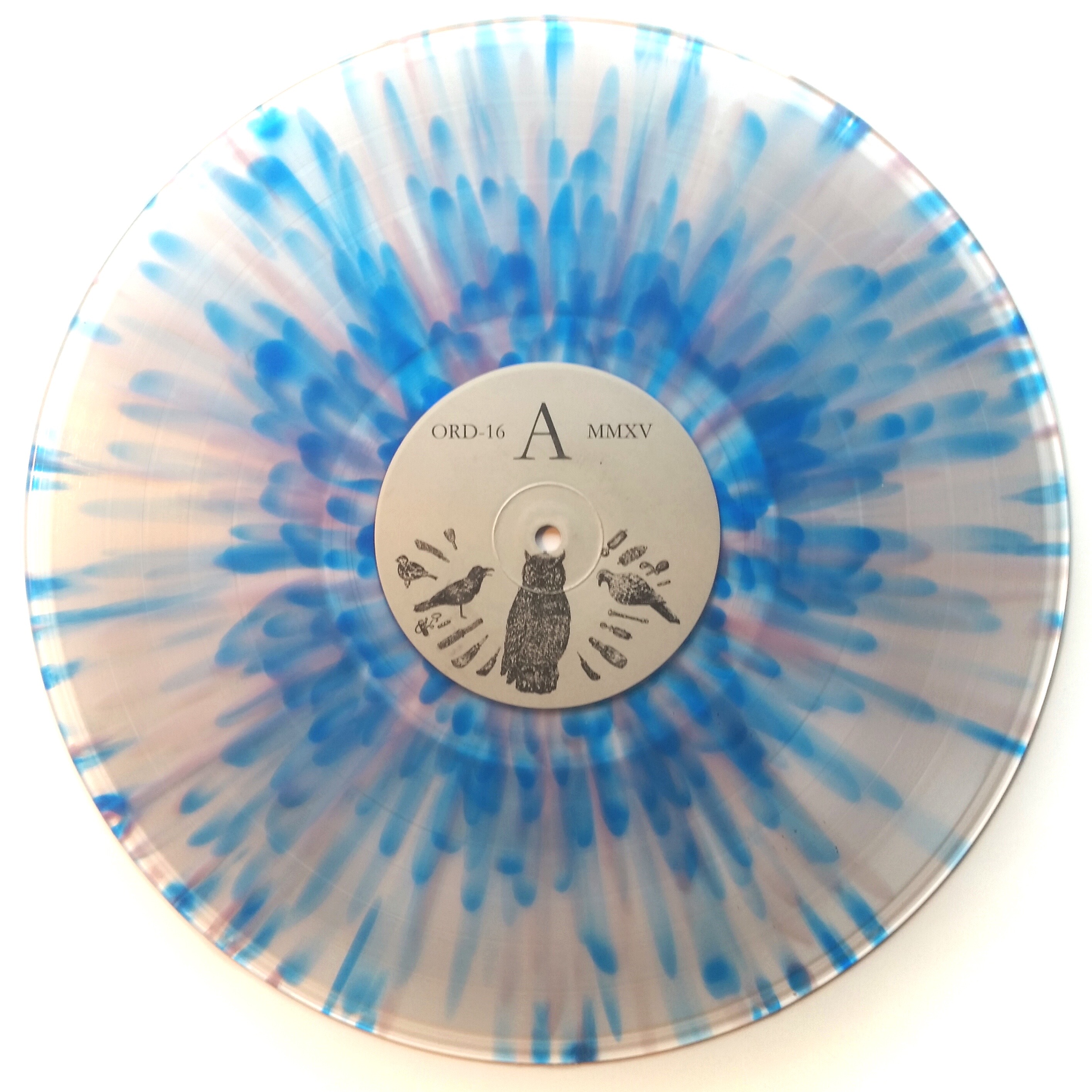In 2012, when Owen Ashworth decided he had outgrown Casiotone For The Painfully Alone and began recording under the name Advance Base, it seemed that the dreaded change of direction might occur. Luckily for us (that is, you and I, music listeners who know what’s good for us), any alteration was small and subtle, the next step of an evolution that had been apparent since CFTPA’s last full-length Vs. Children. As I wrote in my review of A Shut-In’s Prayer,
“This is no chillwave side-project, no 80s-inspired synth revolution, just an extremely talented lyricist doing what he does best”
Instead of a drastic alteration of sound, what had changed was the focus and reach of Ashworth’s writing. There has long been a factoid in circulation that Owen Ashworth is a sad, angry-at-the-world young man who writes sad, angry-at-the-world music, most likely about himself. Of course, the moniker Casiotone For The Painfully Alone didn’t help matters, nor did his choice of theme or style (for those not familiar, CFTPA is a pretty much perfect description). However, the true strength of his writing is how he manages to cast outside of himself to create nuanced, believable characters from different walks of life. While early albums (arguably right up to Etiquette) focused on post-collegiates lost in their twenties, Ashworth has gradually cast his net wider, and Advance Base’s sophomore album Nephew in the Wild finds this evolution still in motion, with the characters slowly radiating from the sad teens in draughty apartments into a wide ensemble of (still mostly sad) misfits, dropouts and unfortunates (read: real human beings) occupying all sorts of lives and unfortunate situations.
The record opens with ‘Trisha Please Come Home’, in which a nameless narrator rues the disappearance of the titular Trisha from their small, blue-collar town. While the scenario might not seem all that original, Ashworth subverts the usual lost-love angst in favour of real-world worry and sincerity – small, poignant details replacing the sweeping melodrama and self-pity familiar to pop and country music. So when they say “You don’t call me ever on the phone / Am I supposed to listen to Thin Lizzy & get high on my own?” it comes off a half-joke, an attempt to make light of a situation that has hurt more than they would ever admit.
[bandcamp width=100% height=120 album=2527954402 size=large bgcol=ffffff linkcol=0687f5 tracklist=false artwork=small track=2617062814]
As a consequence of this careful writing ability, you always get the sense that the characters in Ashworth’s music are almost real – three-dimensional, complex people who have lives outside of the incidents and accidents detailed in the songs. Take ‘Might of the Moose’ for example, an indie pop vignette where the narrator hits a moose with their car. The tale alone seems odd and dramatic enough to warrant telling, but the song is loaded with greater meaning, subtle details woven in with a master’s precision.
“On my way home from Traverse City
I hit a moose it wasn’t pretty
Walked ’til I found a Citgo payphone down the road
& I called your house it’s the only number that I know”
As is often the case with Ashworth’s work, a simple love story emerges from beneath (or rather within) the primary details, with small references to everyday events and gestures (ie. calling a familiar face for a tow truck after totalling your car) allowing a higher story to blossom. The song brings to mind ‘The Perfect Gerbil’, an essay by George Saunders from his collection The Braindead Megaphone, where he explains the genius of Donald Barthelme’s ‘The School’ and the economy of its language. The story is essentially a recurring pattern of increasing severity: things associated with the school die. It starts with an unsuccessful gardening project and escalates into classroom pets fatalities and eventually human death. The piece is funny and entertaining, with sharp wit and intrigue carrying your attention (ie. “what’s going to die next!?”) but the ending unfurls with a deft turn, allowing the true meaning to dawn on the reader. The teacher is asked by his class to make love to the teaching assistant Helen (“so that we can see how it is done… We know you like Helen”). The teacher refuses, although admits he likes the woman, and Helen just “looked out of the window”. As Saunders explains:
“A few lines ago we didn’t even know Helen existed, but we do now, and so does The Narrator, and the small voice in our mind that has all along been registering that The Narrator has no personal life… is assuaged: this is now, writ small, a love story. It’s a love story!”
I suppose what I’m trying to say is that I think all of Ashworth’s songs are love stories in one way or another. ‘Christmas in Dearborn’ has an almost lullaby-style opening and a ‘hushed snowfall, fire in the hearth’ kind of vibe. Sad but warmly so, the song charts a holiday season with the people you don’t get along with but love all the same, describing the various guests and dull conversations while hinting at the failed marriage of the narrator. ‘Pamela’ is yet another spin of a love song, telling of a girl born to teenage parents, the father a drug dealer (“Sold acid & mescaline”) and the mother a fast food worker (“She worked at Dairy Queen/and no matter how she cleaned/she still had the smell of death in her hair”). This is a familiar theme in Ashworth’s work, a broken home where the father is absent (or worse) and love or the lack of it shapes both mother and child into forms they would rather not fill.
“You were born into a world of sin
You are the devil’s kin
The sign of the beast on your skinYou have come to fulfill a prophecy
To level humanity
& burn everything that you see”
[bandcamp width=100% height=120 album=2527954402 size=large bgcol=ffffff linkcol=0687f5 tracklist=false artwork=small track=2889439844]
‘Christmas in Milwaukee’, the second festive song, tells of a person trying to keep their head above water (both figuratively and literally) with a baby in tow. The love here is not the cotton-candy kind but rather one of pacts and promises, a binding force which makes even the most cheerful days unneeded complications (“You want a Christmas in Milwaukee/I’ve got trouble enough”). ‘Summon Satan’ goes a step further, with love conspicuous in its absence. Concerning teenage dabblings in the occult, this is a story of loneliness and isolation and the violent messed-up means a person can resort to abate them. “You had tried to summon Satan” sings Ashworth, “but screwed up the incantation, and left an open portal on your parents’ kitchen wall”, before going on to describe the brutal-yet-detached ‘curse’ in almost tender detail, as if he is looking back at something irreconcilable. Things don’t get any more conventional (or should that be fictional? Romantic?) with ‘My Love For You is Like a Puppy Underfoot’, with Jody Weinmann’s lyrics detailing lots of clever analogies of love.
“My love for you
It’s not an atom bomb
My love for you
It’s not a lightning storm
My love for you
It’s like a puppy underfoot
Better watch my step
You know I could trample itMy love for you
It’s not a movie script
Doesn’t make sense
To my friends when I describe it”
[bandcamp width=100% height=120 album=2527954402 size=large bgcol=ffffff linkcol=0687f5 tracklist=false artwork=small track=1128331559]
‘The Only Other Girl From Back Home’ plays like an old folk-song updated for the teens of maybe the eighties or nineties, with loneliness and liquor and lookers to fight over, and a good heap of tragedy to wrap things up. The title track is similarly tragic, the ghosts of absent fathers haunting the story of a family torn up by silly mistakes and blind chance (“In hard times kids grow up fast / Please be there for him / your sister would ask”). Again, the song feels from a previous time, not old per se but pre-internet, and indeed all of Nephew in the Wild sits somewhere in this not-so-distant past, The Year of the Painfully Alone, in which things appear simpler yet further apart, stretched wide by a lack of technology, a place where disappearances are easy and final.
So, for all the worries about changes of direction, Nephew in the Wild sees Ashworth following the same path he always has. Any changes are because he’s getting better at what he does, refusing to stand still. The final song, ‘Kitty Winn’, feels like a milestone along this road. The track’s autobiographical air is conspicuously different to the rest of the album, although the storytelling is if anything even more effective. It finds Ashworth older and wiser, accepting his past as something sometimes damaging and instead focussing on his new family and life at home. This too is very much a love song, in fact the most sincere, ardent one on the record.
“We got married in September
The baby came the next December
So I got off the road
It’s the longest I’ve been home
since I remember
I wake up earlier these days
to dress the kid & fix her eggs
Then we’ll walk down to the park
if it’s nice out
There’s a swing set where she playsI’m not out looking for something
I haven’t found
You won’t see me around
I’ve got a family now”
[bandcamp width=100% height=120 album=2527954402 size=large bgcol=ffffff linkcol=0687f5 tracklist=false artwork=small track=3476993947]
It’s a wonderful song, and one which is imbued with perhaps the holiest of all emotions: contentment. And I for one hope it truly is autobiographical. I don’t know Owen Ashworth, and maybe I’m completely wrong, but he seems like a kind and empathetic generally nice human being, in the same way the best writers seem like people you could be friends with. Even if none of that is true, I guess it doesn’t matter – what is indisputable is the fact that he’s a damn good writer who tells stories that speak to and help us all. While it’s easy to cast him as the lonely boy in front of a keyboard, the truth, at least in my eyes, is that he’s often hardly there at all, a transparent gateway into the lives of people you’ve never met feeling things you thought you had to suffer through alone.
Nephew in the Wild is out now and you can download it from the Advance Base Bandcamp page or grab a physical copy from the Orindal store/Tomlab.


